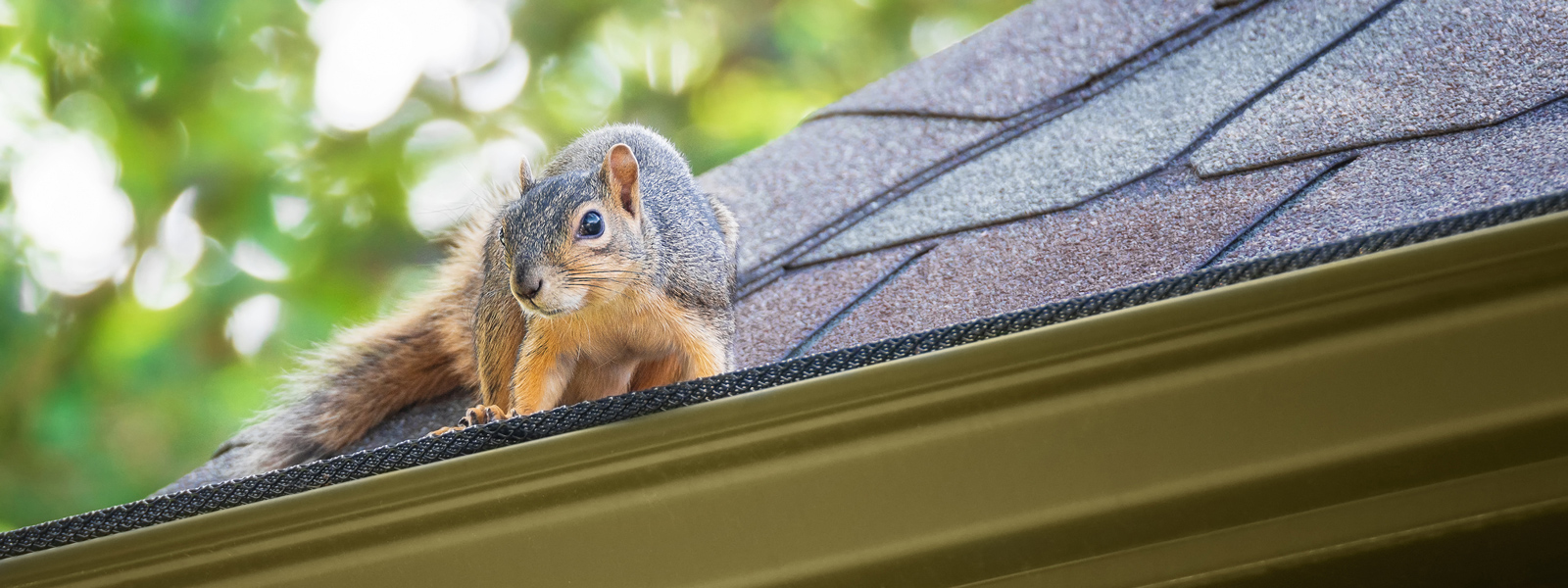Humane Rodent and Dead Animal Removal: Local Experts Near You.

Humane Rodent and Dead Animal Removal: Local Experts Near You.
Quickly and discreetly remove rodents and dead animals from your home. Find a trusted professional near you.
If you are having a problem with a wild animal, please select your city/town in Virginia from the map or list above. This Virginia animal control directory lists the phone numbers of professional wildlife removal experts throughout Virginia. These nuisance wildlife control operators deal with conflicts between people and wildlife such as squirrels living in an attic, or raccoons digging through the trash can. Call the licensed and insured professional listed here, and get the problem taken care of once and for all.
There are many Virginia pest control companies, but most of them treat for insect problems, and have little experience dealing with wild animals. Our specially trained technicians have the specific knowledge and equipment necessary for Virginia wildlife management. We are not extermination companies, we are professional Virginia trappers of wildlife. We are humane, and do a complete job - everything from animal damage repairs to biohazard waste cleanup.
Our Virginia animal control experts can handle many wildlife issues. Examples include Virginia bat control and removal. It takes an experienced pro to safely and legally remove a colony of bats. The same goes for bird control, such as roosting pigeons. We know all the species of Virginia snakes, and can safely remove them. We most commonly deal with animals in the home, such as rats or mice in the attic, or raccoons in the chimney. Select your area on the map above, and find a professional in your home town.
There are many Virginia pest control companies, but most of them treat for insect problems, and have little experience dealing with wild animals. Our specially trained technicians have the specific knowledge and equipment necessary for Virginia wildlife management. We are not extermination companies, we are professional Virginia trappers of wildlife. We are humane, and do a complete job - everything from animal damage repairs to biohazard waste cleanup.
Our Virginia animal control experts can handle many wildlife issues. Examples include Virginia bat control and removal. It takes an experienced pro to safely and legally remove a colony of bats. The same goes for bird control, such as roosting pigeons. We know all the species of Virginia snakes, and can safely remove them. We most commonly deal with animals in the home, such as rats or mice in the attic, or raccoons in the chimney. Select your area on the map above, and find a professional in your home town.
Virginia info: The state mammal is the Virginia Big-Eared Bat, but this is not a common nuisance bat species. The Little Brown Bat is far more common.
If you need assistance with a domestic animal, such as a dog or a cat, you need to call your local Virginia county animal services or SPCA for assistance. They can help you out with issues such as stray dogs, stray cats, dangerous animal complaints, pet adoption, bite reports, deceased pets, lost pets, and other issues. We have those numbers listed here for your convenience. If your city is not on our map, consult your local yellow pages or search for 'Animal Control' or 'SPCA' in your town.
If you need assistance with a domestic animal, such as a dog or a cat, you need to call your local Virginia county animal services or SPCA for assistance. They can help you out with issues such as stray dogs, stray cats, dangerous animal complaints, pet adoption, bite reports, deceased pets, lost pets, and other issues. We have those numbers listed here for your convenience. If your city is not on our map, consult your local yellow pages or search for 'Animal Control' or 'SPCA' in your town.
Madison, WI
11°F to 82°F
11°F to 82°F
- Tiger swallowtail butterfly
- Brook trout, striped bass
- Northern cardinal
- Virginia big-eared bat
Virginia is a small be beautiful state bordering the Chesapeake Bay. The land is filled with bay tributaries, and the coastal plain extends back to rocky foothills which eventually turn into the Blue Ridge Mountains. The carbonate rock of the region is littered with over 4000 caves. And caves, as we all know, are fantastic homes for bats. Bats in Virginia are just above the non-hibernation line. The state does experience cold temperatures in the winter, and bats will have to migrate or go into hibernation. Because most caves remain at a consistent temperature even during the winter, hibernation is often the route of choice.
Predators in Virginia are large and rarely seen due to the thick forests and unpopulated mountain regions. Of these, the cougar is the most deadly toward other animals. Black bears are also present, but their diet consists mostly of berries and insects. If pressed to starvation, a black bear will hunt small mammals, sometimes going after nesting squirrels or the fawns of white-tailed deer. Coyotes are also present in the state, though packs are small and territorial. It is rare for these large predators to bother people, but if the weather is harsh, or a drought kills off too many food creatures, black bears, cougars, and coyotes will all move toward humans in hopes of an easy meal.
Large predators aren't the only opportunistic creatures. The state has a large number of deer, porcupines, hogs, skunks, opossums, squirrels, and woodchucks. There are also mink and long-tailed weasels. Bobcats are the mid-sized predator in this state, but the bobcat is almost more reclusive than the cougar, and is rarely—if ever—seen by people.
The abundance of fresh water in this state leading into Chesapeake Bay is perfect for the growing and proliferation of reptiles and amphibians. The state is loaded with a variety of snakes, including the black snake, rats snake, cottonmouth snake, coral snake, copperhead snake, and the kingsnake. These serpents are surrounded by a host of other reptiles. Turtles are numerous and grow to impressive size in Virginia.
With so much game around, birds, especially raptors are able to thrive. Virginia has golden eagles, a huge species of raptor that has a golden hue in the feathers at the nape of the neck. Golden eagles are mysterious and usually in isolated groups, making the difficult to observe and study.
Predators in Virginia are large and rarely seen due to the thick forests and unpopulated mountain regions. Of these, the cougar is the most deadly toward other animals. Black bears are also present, but their diet consists mostly of berries and insects. If pressed to starvation, a black bear will hunt small mammals, sometimes going after nesting squirrels or the fawns of white-tailed deer. Coyotes are also present in the state, though packs are small and territorial. It is rare for these large predators to bother people, but if the weather is harsh, or a drought kills off too many food creatures, black bears, cougars, and coyotes will all move toward humans in hopes of an easy meal.
Large predators aren't the only opportunistic creatures. The state has a large number of deer, porcupines, hogs, skunks, opossums, squirrels, and woodchucks. There are also mink and long-tailed weasels. Bobcats are the mid-sized predator in this state, but the bobcat is almost more reclusive than the cougar, and is rarely—if ever—seen by people.
The abundance of fresh water in this state leading into Chesapeake Bay is perfect for the growing and proliferation of reptiles and amphibians. The state is loaded with a variety of snakes, including the black snake, rats snake, cottonmouth snake, coral snake, copperhead snake, and the kingsnake. These serpents are surrounded by a host of other reptiles. Turtles are numerous and grow to impressive size in Virginia.
With so much game around, birds, especially raptors are able to thrive. Virginia has golden eagles, a huge species of raptor that has a golden hue in the feathers at the nape of the neck. Golden eagles are mysterious and usually in isolated groups, making the difficult to observe and study.
Virginia Wildlife Invading Homes: A Growing Concern
Virginia's landscape and climate make it an ideal habitat for a wide variety of wildlife. Unfortunately, this can also lead to problems for homeowners as animals seek shelter and food in residential areas.
As the human population continues to expand, encounters with wildlife are becoming increasingly common across the United States. One of the most frustrating and sometimes dangerous issues for homeowners is when animals find their way inside.
One of the most common culprits is the raccoon. These intelligent and adaptable creatures are skilled at finding ways into homes through small openings in roofs, chimneys, or vents. Once inside, they can cause damage to insulation, wiring, and furniture.
The specific types of wildlife that may invade homes vary depending on the region, but some common culprits in Virginia include:
To prevent wildlife from entering your home, consider the following:
If you have a wildlife infestation, it's important to contact a professional wildlife removal service. They have the experience and equipment to safely and humanely remove animals from your home and prevent future infestations.
By taking these steps, you can help protect your home and property from wildlife damage while also ensuring the safety of both humans and animals
As the human population continues to expand, encounters with wildlife are becoming increasingly common across the United States. One of the most frustrating and sometimes dangerous issues for homeowners is when animals find their way inside.
One of the most common culprits is the raccoon. These intelligent and adaptable creatures are skilled at finding ways into homes through small openings in roofs, chimneys, or vents. Once inside, they can cause damage to insulation, wiring, and furniture.
The specific types of wildlife that may invade homes vary depending on the region, but some common culprits in Virginia include:
- Opossums: These nocturnal marsupials can squeeze through surprisingly small holes.
- Squirrels: Both ground squirrels and tree squirrels can cause damage to homes and gardens.
- Bats: Bats may enter through small gaps in the roof or walls, potentially carrying diseases.
- Rodents: Rats and mice can squeeze through tiny openings and contaminate food.
To prevent wildlife from entering your home, consider the following:
- Seal up entry points: Inspect your home for any gaps or cracks in the exterior and seal them with caulk or metal flashing.
- Install screens: Use screens on windows and vents to deter flying animals.
- Remove attractants: Keep garbage, pet food, and bird feeders away from your home to avoid attracting wildlife.
If you have a wildlife infestation, it's important to contact a professional wildlife removal service. They have the experience and equipment to safely and humanely remove animals from your home and prevent future infestations.
By taking these steps, you can help protect your home and property from wildlife damage while also ensuring the safety of both humans and animals
